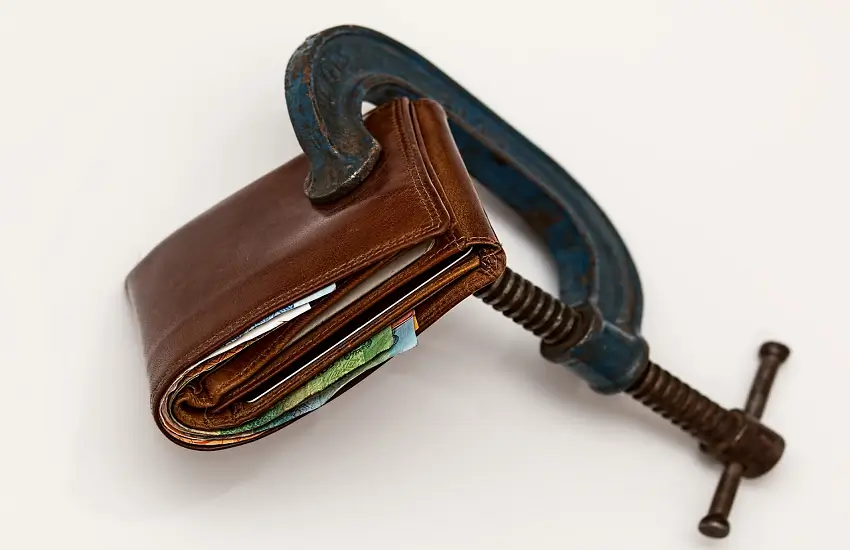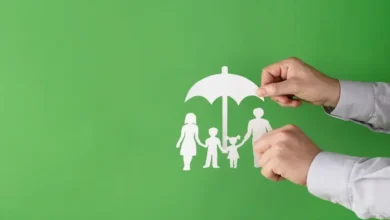
5 Ways to Take Control of Your Debt When You Feel Overwhelmed
It can feel like a weight on your shoulders, can’t it? You have bills and unexpected expenses to pay, and before you know it, you’re drowning.
Don’t worry, you’re not alone, and you can take it back.
We’ll see how debt creeps on us and, most importantly, how to deal with it.
Prioritize Your Debts
When you’re tackling your debt, the first critical step is deciding which debts to pay off first. Think of it like figuring out which weeds to pull from your garden first—they’re all a bit pesky, but some are doing more damage than others.
For most, high-interest debts—those sneaky credit card balances—are a logical starting point. These debts grow quicker than others, draining your resources more aggressively if left unattended. Imagine them as leaks in your financial boat; patch them up first to stay afloat.
But that’s not the only route to consider. Sometimes, people find success starting small. It’s called the “snowball method.” Picture yourself winning a series of smaller victories by paying off the tiniest debts first. With each debt cleared, that’s one less envelope cluttering your mailbox, one less reminder of what you owe. It builds confidence, and you start feeling lighter and more in control.
Regardless of your chosen approach, the key is to start somewhere. Make a list of your outstanding debts and put them into order. Create a snapshot of who you owe, how much you owe, and the interest rates attached. With this clear picture, decide which path energizes you most—the targeted attack on high-interest debts or the momentum-building snowball method.
Consolidate Your Debt
Consolidation is a great idea for you if you’re dealing with lots of debts, like a circus performer with too many plates. Think of how you could see all those pesky balances rolled into one single, manageable monthly payment, hopefully with a lower interest rate. Doesn’t that sound like a breath of fresh air? By consolidating your debt, you essentially take out one loan to pay off several others.
Now, why might this be beneficial, you ask?
- Simplification: Streamlining your debt into one payment reduces the confusion and stress of managing multiple due dates, which helps you stay organized and avoid late fees.
- Lower Interest Rates: The rate of the consolidation loan taken is lower, which in turn means that the net interest paid over the loan will be less, making it easier to bring down the principal amount.
- Fixed Repayment Term: More often than not, the consolidation tends to also have an established direct means that will allow for a certain timeline over which the consolidation will be paid off.
- Improved Credit Score: Properly managing and paying off a consolidated debt can positively impact your credit score, as it demonstrates your commitment to resolving your financial obligations.
But let’s not jump in blindly. It’s crucial to weigh the terms carefully, considering any fees or changes in loan duration. You don’t want to end up extending your debt over so many years that you end up paying more in interest overall, even at a lower rate. It’s all about finding that sweet spot—a deal that truly benefits your finances.
Negotiate with Creditors
Communication is your friend when you are fighting with debt. If you’re not getting better terms, don’t hesitate to contact your creditors to negotiate better terms. It might seem scary at first, but pretend it’s like having an open conversation about something you both have in common, like your financial stability.
But, can you change a loan repayment plan? Potentially, yes. Creditors want their money back, and they don’t want to deal with defaulters. Call your credit card company with a clear explanation of your current situation, and kindly ask if they can offer a lower interest rate or a more accommodating payment plan. You’d be surprised at how willing they might be to help after all, it’s in their interest, too, for you to repay what’s owed instead of defaulting.
Here’s a little secret: creditors often have special programs to help people just like you. These may not be widely advertised, but they’re available if you ask. Start by noting down your key points—like why you’re struggling with the current payment structure and how a modification could ensure better compliance on your side. This preparation shows you’re serious about working together towards a solution.
When you engage with them, be polite yet assertive. Demonstrating your effort to make a change not only showcases your determination but also encourages them to meet you halfway. Remember, though, not every call will result in changes, but persistence is key. Even small steps, like reducing the interest rate by a couple of percentage points, can make a significant difference over time—cutting down your debt load and lightening that emotional burden.
Use Windfalls Wisely
We’ve all been there—when an unexpected check lands in the mail or your boss announces a surprise bonus. Of course, it’s tempting to think of all the splurges we can afford to indulge in. However, what if I told you there’s a smarter way to use this gift from the financial universe? You will be thanking yourself in the future promise channel that windfall directly into tackling your debt.
Here’s why:
- Impactful Dent: Imagine putting that extra cash on a financial laser beam to your debt. This is your golden opportunity, whether it’s a hefty tax refund or a year-end bonus. Windfalls can be used to reduce your debt balance faster than you expect and take away from the interest eating away at your resources.
- Mindset Shift: Think of this approach as investing in peace of mind. Reducing your debt load not only brightens your financial outlook but also gives you a sense of achievement—like knocking off a significant chunk in one swipe.
- Budget Freedom: Freeing up debt alleviates monthly stress and gives you a bit more breathing room. Isn’t that liberating? When the unexpected comes knocking again, you’re better prepared.
Cut Unnecessary Expenses
I get it—sometimes it feels like everything on the list is essential! But trust me, there’s gold to be found when you dig deep into your spending habits.
First off, take a hard look at how often you’re dining out. I love a good restaurant meal as much as the next person, but those frequent lunches and dinners add up faster than you’d think. Challenge yourself to whip up more meals at home. Not only is it kinder to your wallet, but it can also be a fun way to explore new recipes and bond with family or roommates. Plus, the satisfaction of savoring something you’ve made from scratch is unbeatable!
Next, let’s talk subscriptions. It’s time to Marie Kondo your streaming services and gym memberships—do they really spark joy? If you can’t remember the last time you watched a show on that lesser-used platform or hit the gym, maybe it’s time to cut the cord. To do this, pool subscriptions with friends or take advantage of free trials from alternative services.
If you are considering tweaking what you have now, that’s fine. For example, using generic items instead of branded ones can lower your bill without compromising quality. Wouldn’t it be better to bundle your phone and internet services?
So, here’s the plan: find out those budget leaks and patch them up. With the newly freed-up cash, you can chip away at your debt.



